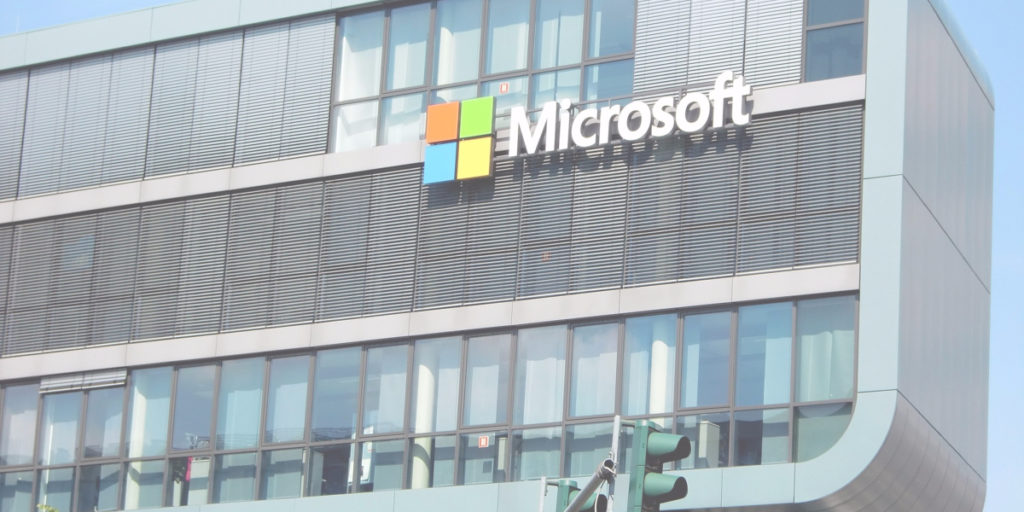What I Learned at Microsoft About Productivity

Being in business today means being on email. Email is a fabulous tool that makes communication much more efficient. Remember having to print everything out and wait days for things to be delivered via mail?
Email has definitely saved us a lot of time. However, today the sheer volume of email is much larger than we would have ever received via mail. Email is one more item on our todo list that we are trying to keep up with. Some studies show that office workers spend 30% of their time on email.
Microsoft is a company that lives on email communication. It isn’t uncommon to get hundreds of emails a day working there. It’s the rare person at Microsoft who isn’t overwhelmed trying to keep up with all the email having inboxes with thousands of emails. Regularly skimming through the inbox over and over again looking for anything that you missed or that needs to be answered now.
Since most everyone spends hours a day in meetings, the common strategy is to use that time to catch up on email. I worked at Microsoft for over 8 years with 5 different groups. Across the diverse groups I saw the same strategy of using time spent in meetings to catch up on email. This isn’t just at Microsoft; a survey of information workers showed that 92% used time in meeting to multi-task.
On the surface this looks like an efficient use of time and you probably use it in your business too by checking email while doing something that doesn’t require all your attention. However, it is costing you much more than you realize.
Multi-Tasking vs. Task-Switching
What studies have found by looking at brain scans is that you’re not really multi-tasking, meaning “doing two things at once.” The brain scans show that you’re actually task-switching, and that the brain goes back and forth focusing between the two.
So, when you are in a meeting, on a webinar, and checking email, your brain is having to switch back and forth between the two activities. Studies show your efficiency drops by up to 40 percent when you’re doing that.
Try this simple exercise; write your first name and then your last name underneath but alternate first one letter from your first name then one letter from your last name, then back up to your second letter of your first name then back to the second letter of your last name, etc.
Notice how much slower that is on something you are so familiar with?
Does Task-Switching Make You Dumber?
Not only does your efficiency drop substantially but, when you’re multi-tasking or task-switching, it also lowers your IQ. When you’re doing cognitive tasks and multi-tasking – like in a meeting, sending an e-mail – your IQ declines similarly to if you were smoking marijuana or staying up all night. Actually, if you’re in a meeting writing an e-mail, your IQ drops by 15 points.
You Can’t Get Better At It
Here’s the other thing: The more you do task-switching, the worse you get at it. People think that they train their brain to multi-task. However, studies show the more that people multi-task, the worse they are at being able to multi-task, and that their brains can’t switch as fast.
It’s kind of ironic (and baffling) that, while Microsoft hires the best of the best, they’re using their amazing staff in a clearly ineffective way. Due to their culture of multi-tasking, not only are bad decisions being made but the research shows that it’s actually making their employees less intelligent.
Wasted Time
I can’t count the number of times at Microsoft that a decision would be made involving people who were in the room. However, they missed the decision being made and then later would have a problem with it. Another recurring issue during a meeting is that somebody would hear their name and then they would say, “Oh, sorry. Repeat that” because they were in email and not paying attention. This adds up to a lot of wasted time.
The Energy Drain
Another big cost to task switching is energy. Every time to switch, your brain dumps the information it was holding in short term memory and loads for the new task. Going back and forth throughout a meeting results in the simple tasks of checking email and attending a meeting leaving you exhausted.
Does any of this sound familiar to you? Are you trying to “be more productive” by checking e-mail or doing other tasks while on conference calls or webinars? Are you jotting notes in calendar while you’re on a client call? How is this showing up in your business and what changes can you make, now that you know what I’ve shared here?
Share below where you are most tempted to multi-task and check email.

Hi, I’m NJ! I help ambitious women reclaim 20+ hours a week to make real progress on their Big Plans. With a blend of smart strategies and a touch of tech like AI, I guide my clients to streamline distractions, protect their focus, and achieve more in less time. Are you ready to finally feel in control of your day? Let’s make your dreams happen—together. Learn More >>
